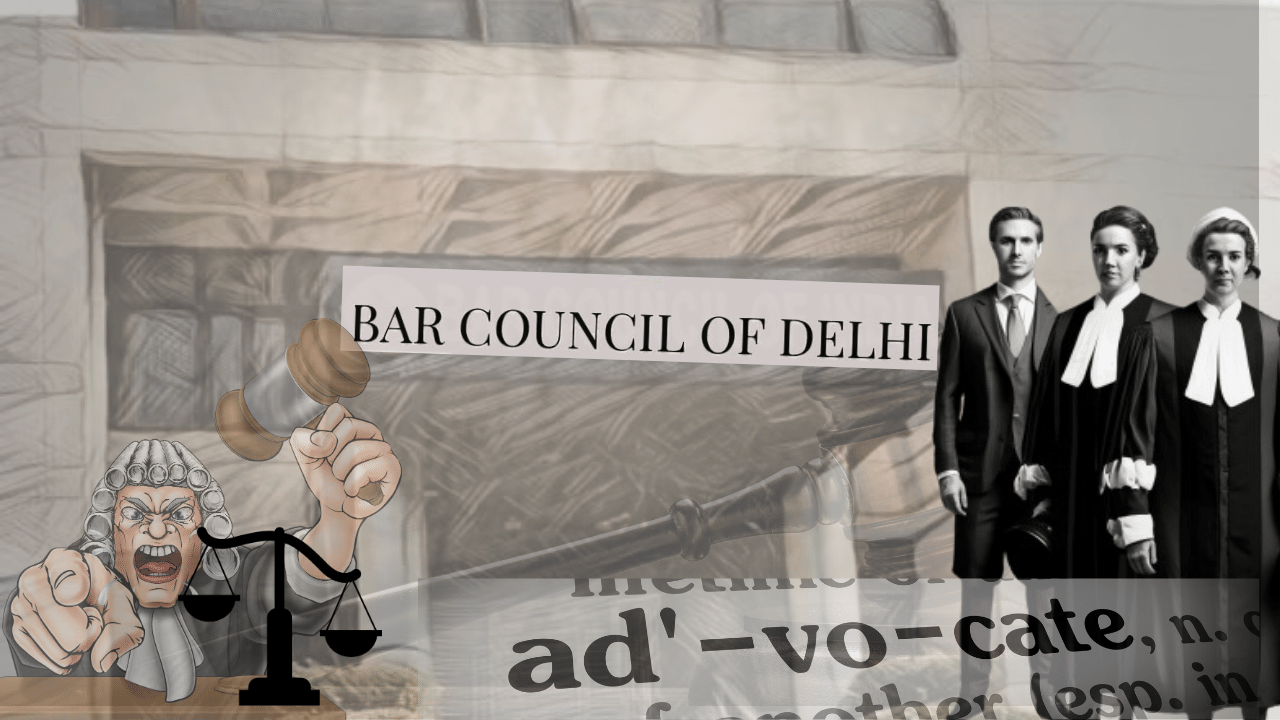The Bar Council of Delhi (BCD)
is challenging a single judge’s order to provide details of all pending complaints before it, The Bar Council of Delhi (BCD) has contended that the writ jurisdiction does not extend to the day-to-day matters concerning disciplinary proceedings of the State Bar Councils and Bar Council of India (BCI).
Justice Prathiba M Singh had ordered the BCD to place on record the details of all pending complaints against advocates, including the dates of filing of the complaints and first notices. The BCD has filed an appeal against the order, which a division bench of Chief Justice Satish Chandra Sharma and Justice Sachin Datta has listed for hearing on April 17.
Represented by Senior Advocate Ramesh Gupta and advocates K C Mittal, Ajay Kumar Agarwal, and Sachin Jain, the BCD argues that the observations made by the single judge have cast doubt on the functioning of the Bar Council of Delhi and its members, lowering the dignity of the body and rendering its entire functioning redundant.
The BCD contends that the impugned order is not in consonance with the scheme of the Advocates Act, 1961, The Bar Council of Delhi (BCD) has argued that, according to the Advocates Act of 1961, the State Bar Councils and Bar Council of India (BCI) cannot be subject to writ jurisdiction in relation to disciplinary proceedings. The plea further asserts that there is no provision for interference by way of writ jurisdiction by the High Courts or any other court, except the Hon’ble Supreme Court.
Referring to the legislative scheme of the Advocates Act,According to the plea, the Bar Council only sends a complaint to the disciplinary committee for further action if the full house is not satisfied with the reply or explanation given by the accused advocate. However, Justice Prathiba M Singh noted that lawyers should not be subjected to repeated complaints to the Bar Council that cause harassment and frustration unless there is a serious case of misconduct.
During the hearing of a petition filed by four lawyers, Justice Prathiba M Singh was considering the notices issued by the BCD on February 13, which directed the four lawyers to appear in person at the Bar Council’s office on February 24. The BCD sent the notices to the four lawyers after becoming aware of a complaint filed on January 13, and all four lawyers are now respondents in the BCD’s appeal.
The issue at hand raises questions about the accountability of the Bar Councils and the BCI in handling complaints against advocates. The BCD’s argument that they are not amenable to writ jurisdiction for their day-to-day matters relating to disciplinary proceedings implies that they are accountable only to the Supreme Court, leaving little room for any other court to oversee their functioning.
However, it is crucial to ensure that there is a mechanism in place to hold the Bar Councils and the BCI accountable for their actions, given their role in regulating the legal profession. The Advocates Act empowers the Bar Councils and the BCI to maintain standards of professional conduct and discipline among advocates, and it is essential to ensure that they discharge this responsibility effectively.
At the same time, it is equally important to ensure that the complaints against advocates are dealt with fairly and expeditiously. Repeated complaints can lead to harassment and frustration for lawyers, as Justice Prathiba M Singh observed, and it is crucial to strike a balance between ensuring accountability and protecting the interests of advocates.
The issue also highlights the need for a comprehensive reform of the legal profession, including the regulation of legal education, entry into the profession, and continuing professional development. Such reforms can help to ensure that advocates maintain high standards of professional conduct, and the Bar Councils and the BCI are equipped to handle complaints effectively and efficiently.
In conclusion, while the BCD’s appeal raises important questions about the accountability of Bar Councils and the BCI, it is essential to ensure that there is a mechanism in place to address complaints against advocates and to ensure that the disciplinary process is fair and transparent. While the BCD argues that the High Court does not have writ jurisdiction over the Bar Councils’ day-to-day disciplinary matters, it is important to note that the Court has a duty to ensure that the process is conducted in accordance with the law and that the rights of all parties involved are protected.
At the heart of this issue is the need to strike a balance between protecting the rights of advocates and ensuring that they are held accountable for any misconduct. While the repeated filing of complaints against advocates can be frustrating and may even be used as a tool of harassment, it is equally important to ensure that advocates who engage in serious misconduct are held accountable and that their clients are protected.
Ultimately, it will be up to the Delhi High Court to determine whether the BCD’s appeal has merit and whether the single judge’s order requiring the Bar Council to provide details of pending complaints should be upheld. In making this decision, the Court will need to carefully consider the relevant provisions of the Advocates Act and the principles of natural justice, while also taking into account the practical realities of the disciplinary process and the need to ensure that advocates are held accountable for their actions.
“RAW Reports Not Commonly Used for Judge Appointments Except in National Security Issues”









Leave a Reply